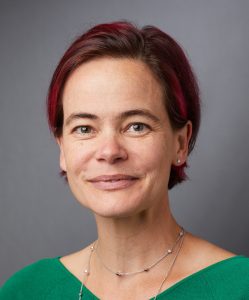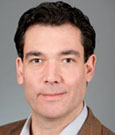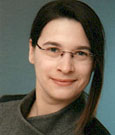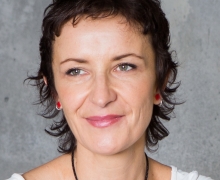
Chuan He
The University of Chicago
USA
EMBO Workshop
The regulation of the transcriptome is key to cellular processes that underpin cell biology, development and tissue function. All classes of cellular RNA are subject to post-transcriptional modification, be it by direct chemical modification, editing or non-templated nucleotide additions. It is now emerging that the modification status of the transcriptome is dynamic and responsive to environmental/developmental cues. Together, this has elicited the realisation of an ‘epitranscriptome’ where post-transcriptional RNA modification coupled with recruitment of effector RNA binding proteins dynamically regulates genomic output. Importantly, mutations in setting or reading RNA modifications are causative of many human diseases or congenital disorders. This meeting aims to explore all aspects of this emerging topic, from methods development to molecular mechanism. Most importantly, the meeting will place an emphasis on the contribution of RNA modification to mammalian development, tissue homeostasis and disease.
“The Epitranscriptome EMBL conference rapidly became a must in the field.” – Mattia Pelizzola, Istituto Italiano di Tecnologia, Italy.
“The conference provided an excellent opportunity to get the latest insights in the field of epitranscriptomics, presented by the world-leading academic groups.” – Gerhard Müller, Gotham Therapeutics, New York, USA.
“This conference was really good for me. I have learnt about new RNA regulatory mechanisms, especially m6A and how it’s an important target for RNA processing.” – Opeyemi Olotu, University of Turku, Finland.

Lund University
Sweden

International Institute of Molecular and Cell Biology
Poland

University of Dundee
UK

German Cancer Research Centre (DKFZ)
Germany

Yale University
USA

Boston Children’s Hospital
USA

Weill Cornell Medicine
USA

Goethe University Frankfurt
Germany

Seoul National University
South Korea

Barts Cancer Institute, Queen Mary University of London
UK

The University of Texas Southwestern Medical Center
USA

National Cancer Institute
USA

University of Geneva
Switzerland

Weizmann Institute of Science
Israel

CEITEC
Czech Republic

German Cancer Research Centre
Germany

Seoul National University
South Korea

MRC Centre for Regenerative Medicine
UK

EMBL Heidelberg
Germany

EMBL Heidelberg
Germany
Got something to say? Tweet it! #EMBOEpitrans
The following time is used in the programme below:
To find out the equivalent time zone in your location, enter Berlin, the programme time and your city into the Time Zone Converter.
| Time (Europe/Berlin) | Speaker |
|---|---|
| 14:00-14:15 | Opening remarks by Scientific Organisers |
| Session 1: RNA modification I Chair: Štěpánka Vaňáčová | |
| 14:15-15:15 | Keynote lecture: RNA methylation in gene expression regulation Chuan He – The University of Chicago, USA ONLY AVAILABLE TO VIEW LIVE |
| 15:15-15:30 | N6-methyladenosine in poly(A) tails stabilizes VSG transcripts Lúcia Serra – University of Lisbon, Portugal AVAILABLE ON DEMAND AFTER LIVE STREAM |
| 15:30-16:00 | Understanding roles of m6A and m6Am methylation in mRNAs Samie Jaffrey – Weill Cornell Medicine, USA ONLY AVAILABLE TO VIEW LIVE |
| 16:00-16:15 | Alphaherpesvirus-induced inhibition of the m6A writer complex and degradation of m6A-methylated transcripts Ruth Verhamme – University of Ghent, Belgium AVAILABLE ON DEMAND AFTER LIVE STREAM |
| 16:15-16:30 | Break |
| 16:30-17:00 | Biochemical characterization of the mouse piRNA methyltransferase mHEN1 Ramesh Pillai – University of Geneva, Switzerland ONLY AVAILABLE TO VIEW LIVE |
| 17:00-17:15 | Heterogenous m6A methylation in single cells revealed using single-cell DART-seq Matthew Tegowski – Duke University, USA AVAILABLE ON DEMAND AFTER LIVE STREAM |
| 17:15-17:30 | Redundancy vs specialization among YTHDF proteins Laura Arribas-Hernández – University of Copenhagen, Denmark ONLY AVAILABLE TO VIEW LIVE |
| 17:30-18:00 | Meet the speakers of Session 1 |
| 18:00-19:00 | Poster session 1 |
| 19:00-19:30 | Optional Social Programme: Speed networking |
| Time (Europe/Berlin) | Speaker |
|---|---|
| Session 2: RNA modifications in stem cells and development Chair: Matthias Soller | |
| 14:00-14:30 | Defining the m3C epitranscriptome and its role in human cells Richard Gregory – Boston Children’s Hospital, USA AVAILABLE ON DEMAND AFTER LIVE STREAM |
| 14:30-14:45 | Nsun5 deletion promotes healthy aging in mice Markus Schosserer – University of Natural Resources and Life Sciences, Austria AVAILABLE ON DEMAND AFTER LIVE STREAM |
| 14:45-15:15 | Selective translation control by pseudouridine-modified tRNA fragments in stem and cancer cells Cristian Bellodi – Lund University, Sweden AVAILABLE ON DEMAND AFTER LIVE STREAM |
| 15:15-15:30 | Break |
| 15:30-16:00 | The m6A code Schraga Schwartz – Weizmann Institute of Science, Israel AVAILABLE ON DEMAND AFTER LIVE STREAM |
| 16:00-16:15 | Uridylation by the TUTase URT1 prevents the accumulation of excessively deadenylated mRNAs to avoid siRNA biogenesis Dominique Gagliardi – University of Strasbourg, France AVAILABLE ON DEMAND AFTER LIVE STREAM |
| 16:15-16:45 | Meet the speakers of Session 2 |
| 16:45-17:45 | Poster session 2 |
| Session 3: RNA modification II Chair: Dominique Gagliardi | |
| 17:45-18:15 | Newest features in MODOMICS, a database of RNA modification pathways Janusz Bujnicki – International Institute of Molecular and Cell Biology, Poland AVAILABLE ON DEMAND AFTER LIVE STREAM |
| 18:15-18:30 | When the heat is on, turn up the Ac(4C) Aldema Sas-Chen – Tel Aviv University, Israel ONLY AVAILABLE TO VIEW LIVE |
| 18:30-19:00 | RNA substrate specificity of METTL3/METTL14 Yunsun Nam, The University of Texas Southwestern Medical Center, USA ONLY AVAILABLE TO VIEW LIVE |
| 19:00-19:15 | Break |
| 19:15-19:45 | The mRNA modification ac4C directly inhibits translation initiation at the Kozak consensus in humans Shalini Oberdoerffer – National Cancer Institute, USA ONLY AVAILABLE TO VIEW LIVE |
| 19:45-20:00 | Uridylation of plant viral RNAs Anne Caroline Joly – University of Strasbourg, France AVAILABLE ON DEMAND AFTER LIVE STREAM |
| 20:00-20:30 | What spatial interactions can tell us about the function of m6A and m6Am factors Štěpánka Vaňáčová – CEITEC, Czech Republic AVAILABLE ON DEMAND AFTER LIVE STREAM |
| 20:30-21:00 | Meet the speakers of Session 3 |
| Time (Europe/Berlin) | Speaker |
|---|---|
| 13:15-13:45 | Optional Social Programme: Mix & Mingle |
| Session 4: RNA modification pathways in physiology and pathology Chair: Michaela Frye | |
| 14:00-14:30 | The impact of the m6A modification on normal and malignant haematopoiesis Kamil Kranc – Barts Cancer Institute, Queen Mary University of London, UK AVAILABLE ON DEMAND AFTER LIVE STREAM |
| 14:30-14:45 | Deciphering the role of tRNA methyltransferases in prostate cancer progression Sandra Blanco – Institute of Molecular and Cellular Biology of Cancer (IBMCC-CSIC), Spain ONLY AVAILABLE TO VIEW LIVE |
| 14:45-15:15 | RNA cap regulation Victoria Cowling – University of Dundee, UK ONLY AVAILABLE TO VIEW LIVE |
| 15:15-15:30 | The RNA methyltransferase METTL8 installs m3C32 in mitochondrial tRNAsThr/Ser(UCN) to optimise tRNA structure and mitochondrial translation Markus Bohnsack – University Medical Center Göttingen, Germany ONLY AVAILABLE TO VIEW LIVE |
| 15:30-16:00 | Meet the speakers of Session 4 |
| 16:00-16:15 | Break |
| Session 5: Emerging concepts Chair: Peter Brodersen | |
| 16:15-16:30 | Identification and validation of 2’-O-methylation sites on mRNA Christopher Holley – Duke University, USA AVAILABLE ON DEMAND AFTER LIVE STREAM |
| 16:30-17:00 | Function and mechanism of mRNA mixed tailing V. Narry Kim – Seoul National University, South Korea ONLY AVAILABLE TO VIEW LIVE |
| 17:00-17:30 | Exploring canonical and non-canonical functions of cancer-linked dihydrouridine synthase enzymes Wendy Gilbert – Yale University, USA AVAILABLE ON DEMAND AFTER LIVE STREAM |
| 17:30-18:00 | Cell culture NAIL-MS allows insight into human RNA modification dynamics in vivo Stefanie Kellner-Kaiser, Goethe University Frankfurt, Germany AVAILABLE ON DEMAND AFTER LIVE STREAM |
| 18:00-18:15 | Mitochondrial RNA 5-methylcytosine drives metabolic reprogramming required for metastasis Sylvain Delaunay – German Cancer Research Centre (DKFZ), Germany AVAILABLE ON DEMAND AFTER LIVE STREAM |
| 18:15-18:30 | Molecular insights into eukaryotic tRNA modification cascades Sebastian Glatt – Jagiellonian University Krakow, Poland AVAILABLE ON DEMAND AFTER LIVE STREAM |
| 18:30-18:45 | Break |
| 18:45-19:45 | Panel discussion on emerging concepts and therapeutic implications Chaired by Michaela Frye Panelists: Victoria Cowling, Chuan He, Samie Jaffrey, Schraga Schwartz, Angela Eggleston ONLY AVAILABLE TO VIEW LIVE |
| 19:45-20:00 | Closing remarks |
| 20:00-20:30 | Meet the speakers of Session 5 |
Registration Fees (include access to all of the talks, digital poster sessions and online group discussions, and help us cover our costs to run the event. For further information please refer to the FAQ page):
| PhD Student | €140 |
| Academia | €190 |
| Industry | €240 |
| EMBL Staff | Intranet access |
Accredited journalists may be eligible to register for a complimentary registration. Registrants may be required to provide accreditation or equivalent proof of press membership after registration. Please contact Aline Schnieder for more information.
Registration will be on a first-come first-served basis. Your place can only be confirmed after payment of the registration fee.
Types of payments accepted are international bank transfers and credit card payments.
Abstract submission deadline: 10 January 2022 (23:59 Europe/Berlin)
Only registered participants are eligible to submit an abstract. We only accept online abstract submissions.
After you have logged in and successfully registered, you will receive an email asking you to submit your abstract. Click on the link provided and enter your abstract in the text box provided. Alternatively you can submit your abstract by clicking on the link on the confirmation page directly after registering.
When submitting your abstract you can also apply for an oral or poster presentation. A selection process will take place with the results announced 2-3 weeks after the abstract submission deadline.
All academic and student registrants are invited to apply for a registration fee waiver, provided by the EMBL Advanced Training Centre Corporate Partnership Programme and EMBO. The registration fee waiver covers the registration sum that you have paid to attend the meeting. Conference participants are not required to pre-pay the registration fee to be selected for a fee waiver for a virtual meeting. If you have already paid the registration fee and are awarded a fee waiver, it will be reimbursed after the meeting.
For participants and speakers with childcare responsibilities there is the possibility to apply for a grant, provided by the EMBL Advanced Training Centre Corporate Partnership Programme and EMBO, to offset childcare costs incurred when participating at a virtual event. Eligible costs include fees for a babysitter or childcare facility or travel costs for a care giver. Please note that priority will be given to early stage researchers. Costs will be reimbursed after the meeting only once a reimbursement form and original receipts have been received. Attendance at the event is required in order to be eligible to receive the reimbursement. In order to apply for this grant, you must be registered by the abstract submission deadline.
Applications for financial assistance can be submitted via the submission portal* (for the submission of abstracts for conferences) by completing the Financial Assistance Application Section (underneath the section for entering abstract/motivation letter information). The link to the portal can be found in the registration confirmation email that you will receive after registering for the conference.
For conferences, if you are not submitting an abstract, you can still apply for financial assistance in the submission portal. Take a look at the instructions for applying for financial assistance. Note that priority will be given to those submitting an abstract to present at the conference. In your application you will be asked to answer questions regarding your motivation for applying, and, for registration fee waivers, the reasons why your lab cannot fund your attendance and how your attendance will make a difference to your career. Application for financial support will not affect the outcome of your registration application.
The scientific organisers will select the recipients of registration fee waivers during the abstract selection process for conferences and the participant selection process for courses. Results will be announced approximately 3 – 4 weeks before the event start date. Selection results do not impact your admission to the meeting. Registration fee waiver selection is based on your current work or study location, your motivation for applying, the reasons for needing financial support and the impact this event will have on your career. Childcare grants are allocated based on career stage, with priority given to early stage researchers.
Check our list of external funding opportunities and read our information on attending a conference as an event reporter.
For further information about financial assistance please refer to the FAQ page.
Please do:
Please don’t:
Additional information can be found in our Code of Conduct.
It is important to stay healthy and move around, especially when you are attending an event virtually. We have put together a few coffee break stretches and yoga videos. You can find these under ‘resources’ on the conference platform.
Please use the Q&A function. It is possible to send a direct message to participants, poster presenters, and speakers within the conference platform.
If you have any other questions, you can go to the Help Desk on the conference platform. Click on ‘more’ on the top menu and click Help Desk.
The programme is planned based on Central European Time (CET) or Central European Summer Time (CEST) unless otherwise stated. As many virtual participants are attending from around the world, we do our best to accommodate as many time zones as possible when creating the programme. Please take your time zone into consideration when planning your attendance. Remember to set your time zone in your account.
We are using a virtual event platform for this conference. More information about the platform will be shared ahead of the conference.
Please find additional information including FAQs and terms and conditions on our Information for Participants page.
Gold sponsor
Media partners
Disease Models & Mechanisms, The Company of Biologists Journal
EMBO reports, an EMBO Press journal
International Union of Biochemistry and Molecular Biology
Open Biology, a Royal Society journal
Sponsorship opportunities
We offer a variety of event sponsoring possibilities, with the flexibility to select a set sponsorship package or combine individual sponsorship options to suit your event budget. Discounts are available for companies sponsoring multiple events at EMBL Heidelberg. View other conferences, or contact sponsorship@embl.de for further information.
If you are interested in becoming a media partner of this event, please visit our media partnerships webpage.
EMBL wishes to warn sponsors of EMBL conferences and courses of fraudulent schemes purporting to offer sponsorship opportunities on behalf of EMBL or affiliated with EMBL officials. One current scam campaign of which we are aware is conducted using the name ‘Judy Eastman’ (judy@gopcontact.a2hosted.com) and entails approaches to sponsors offering sponsorship opportunities on EMBL’s behalf. Please be kindly advised that all relevant communication regarding sponsorship of EMBL conferences, symposia and courses is handled by EMBL directly and is sent from an official EMBL account. EMBL does not work with any external providers on sponsorship acquisition.
Please also note that:
Suspicious communications purportedly from, for or on behalf of EMBL should be reported to EMBL at the following email address sponsoring@embl.de.
Pre-symposium webinar will take place
on Wednesday, 9 February 2022 at 13:00 – 14:00 (Berlin / Germany)
Participation in this webinar is free of charge for registered symposium attendees. The number of available places is limited (first come, first served). All registered conference attendees will receive an email with a registration link.
Speaker: Prof. Joel Yisraeli
Chairman, Department of Developmental Biology and Cancer Research,
Institute for Medical Research – Israel-Canada
Faculty of Medicine, Hebrew University of Jerusalem, Israel
Igf2bp1 is an oncofetal RNA binding protein whose expression in numerous types of cancers is associated with upregulation of key pro-oncogenic RNAs, poor prognosis, and reduced survival. Importantly, Igf2bp1 synergizes with mutations in Kras to enhance signaling and oncogenic activity, suggesting that molecules inhibiting Igf2bp1 could have therapeutic potential. We have performed a high-throughput fluorescence polarization (FP) screen for small molecule inhibitors of IGF2BP1 RNA binding and isolated a small molecule that interacts with Igf2bp1 KH3 and KH4 domains and inhibits binding to Kras RNA. In cells, the compound reduces the level of Kras and other Igf2bp1 mRNA targets, lowers Kras protein, and inhibits downstream signaling, wound healing and growth in soft agar, all in the absence of any toxicity. After a second, optimization, screen, we have performed a multi-omic analysis to identify changes, following inhibitor treatment of H1299 lung carcinoma cells, in direct RNA binding sites (eCLIP), RNA expression (RNAseq), and protein expression (mass spectrometry). This analysis has revealed several cancer progression pathways that are inhibited and has identified novel mechanisms through which IGF2BP1 influences cancer. The inhibitor is currently being tested in vivo and shows promising results in shrinking primary tumors and preventing metastases in mice. This work presents an avenue for improving the prognosis of Igf2bp1-expressing tumors in lung and other cancers.

Date: 9 - 11 Feb 2022
Location: Virtual
Deadline(s):
Abstract submission: Closed
Registration: Closed
Organisers:
Contact: Aline Schnieder